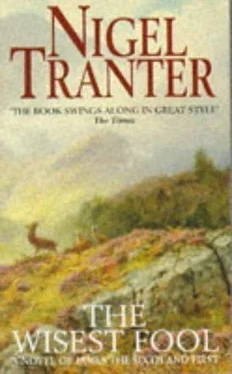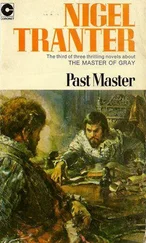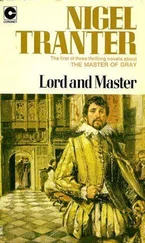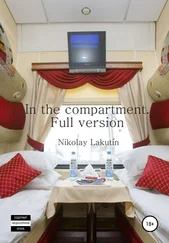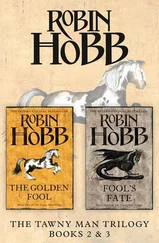Nigel Tranter - The Wisest Fool
Здесь есть возможность читать онлайн «Nigel Tranter - The Wisest Fool» весь текст электронной книги совершенно бесплатно (целиком полную версию без сокращений). В некоторых случаях можно слушать аудио, скачать через торрент в формате fb2 и присутствует краткое содержание. Жанр: Исторические приключения, на английском языке. Описание произведения, (предисловие) а так же отзывы посетителей доступны на портале библиотеки ЛибКат.
- Название:The Wisest Fool
- Автор:
- Жанр:
- Год:неизвестен
- ISBN:нет данных
- Рейтинг книги:4 / 5. Голосов: 1
-
Избранное:Добавить в избранное
- Отзывы:
-
Ваша оценка:
- 80
- 1
- 2
- 3
- 4
- 5
The Wisest Fool: краткое содержание, описание и аннотация
Предлагаем к чтению аннотацию, описание, краткое содержание или предисловие (зависит от того, что написал сам автор книги «The Wisest Fool»). Если вы не нашли необходимую информацию о книге — напишите в комментариях, мы постараемся отыскать её.
The Wisest Fool — читать онлайн бесплатно полную книгу (весь текст) целиком
Ниже представлен текст книги, разбитый по страницам. Система сохранения места последней прочитанной страницы, позволяет с удобством читать онлайн бесплатно книгу «The Wisest Fool», без необходимости каждый раз заново искать на чём Вы остановились. Поставьте закладку, и сможете в любой момент перейти на страницу, на которой закончили чтение.
Интервал:
Закладка:
Then a larger matter loomed. Rebellion broke out in the North of Ireland. This had been a normal occurrence in Elizabeth's reign, and Henry's before her; and both had always put down such revolts with a heavy hand and a sharp sword. But that was not James's way; and by compromise, patience and playing off one faction against another, Protestant against Catholic, he had been able to preserve approximate peace there, under the joint oversight of the Catholic, Irish Earl of Tyrone and the Protestant English Earl of Devonshire-formerly Mountjoy. Now this happy state of affairs was shattered and James was much hurt The more so when he heard that Devonshire was putting down revolt in the time-honoured fashion, with vehement fire and sword. He sent immediate commands for the killing and burning to cease- and set himself furiously to think. It took some time for the fruits of the royal cognition to become evident, in Ireland as nearer at hand. When George Heriot heard the details of the new statecraft, the King's policy of mercy and wisdom, he was lost in a species of wonder, to put it mildly. It was all so very reasonable, so typically James Stewart The trouble in Ireland was basically both religious and ethnic. A vast Catholic majority had had superimposed on it an English Protestant aristocracy, with nothing in common, in blood, language or faith, between the two. This had been the Tudor policy; but James decided that it would never work. He was worried, too, that the religious infection might spread to Scotland-for the two Celtic countries had always had close links, the Ulster and Scots coasts being in places little more than a dozen miles apart. Moreover, warfare within his kingdoms damaged his pacific image. So he devised a mighty and noble scheme. The Irish Catholics of the northern counties, particularly the land-owner class, as far as possible were to be moved out therefrom, to the South, and their lands planted with new Protestant colonists, mainly from Scotland and northern England. The deportees would be given land in the southern counties confiscated from rebellious chiefs and earls now in revolt -there was never any lack of empty land in Ireland, however much of it bog, as a result of endless wars, massacres, famines and the like. There, all would be allowed to practise their Catholic religion in peace, government adjusted thereto. The Catholic South. But the fertile North was to be firmly Protestant-no question of that A Judgement of Solomon.
That was the new policy. But it was the details of implementation which left Heriot, and others, gasping. Somehow Protestant Scots and English must be persuaded to go to Ireland, and to stay there. Only one thing would serve for that-the elementary hunger for land, status, position. The northern counties therefore would be parcelled out into large estates of, say, one or two thousand acres each. Hah-a-million acres would be set aside, in the first instance, to start the scheme. These would be sold at very attractive terms, by the Crown, to all Protestant comers. But a more potent inducement the hereditary knighthoods scheme, would be put into operation. James had found a name for these, since they could by no means be termed knights, and borrowed from English Edward the Third-baronets, or little barons. For a payment of three thousand, two hundred and forty pounds Sterling to the Crown, ostensibly towards the maintenance of the army in Ireland but actually into the royal pocket, the buyers of these Irish estates would receive the title of Baronet of Ulster, would call themselves Sir and their wives Lady, their eldest sons to succeed thereto, and they would bear the Red Hand of Ulster in a badge of augmentation on their arms. They would be responsible for planting the lands gained with Protestant settlers. Ulster would thereafter blossom like the rose, religious warfare would be a thing of the past-and the money would roll in. This was something which parliament could not interfere with, for it had no jurisdiction in Ireland. How much did five hundred times three thousand, two hundred and forty pounds amount to, for a start…?
James Stewart by no means neglected his ancient kingdom of Scotland in his calculations, that year of 1609; but he was scarcely to be blamed if his so active mind tended to be otherwise preoccupied.
22
AT LEAST IT did not stink so badly as on the last occasion. Nor, of course, was the King present in person. But the full panoply of the law was invoked again, and the Parliament Hall in Edinburgh was almost as crowded. George Heriot sat beside his father-in-law to be, no more than an interested spectator.
As on the earlier occasion, nine years earlier, no less, Heriot's bulky and coarsely genial cousin, Sir Thomas Hamilton, Lord Advocate, was the principal actor in the drama, if not exactly the centre of attention. That role was filled, not by the illustrious bench of the King's Lords of Sessions, as judges, nor yet by the Earl of Dunbar, Great Commissioner, strangely enough clad in the magnificent robes of an English Knight of the Garter, in the throne-like chair, as representing the monarch himself; undoubtedly the focus for all eyes, most of the time, was the accused himself, propped up before the Bar, Robert Logan of Restalrig. The fact that he had been dead now for three years inevitably added a piquancy to the entire proceedings.
The remains, unfortunately, were neither one thing nor another, neither a body nor yet a skeleton. Three years interment is an awkward period, insufficient for all fleshy matter to have disappeared from the bone structure but too long for the least semblance of humanity to have survived. The remaining tissue was in a sort of jellified state, and had come away in places to reveal white bone. Grave clothing was patchy also, and a new shroud had been wrapped loosely round much of the relic, more to keep all together than for purposes of decency. What was so consistently fascinating however, was the fine head of hah, greying but plentiful, which topped all-except for one patch over the right ear which had come off; that and the wide, gap-toothed grin which the accused maintained. Logan had always been a fleeringly cheerful scoundrel. As has been said, the smell was not nearly so bad as when the Ruthven brothers, Earl and Master of Gowrie, had been tried in the same Court of Parliament in 1600 -but then, they had been dead only six weeks, at that time.
As then, Tam o' the Coogate-who had survived a phenomenally lengthy spell as Lord Advocate, indicative of considerable agility of mind and conscience, despite his looks-was concerned largely with the same charges, involvement in the hateful and treasonable attempt on their liege lord his life and person, the Gowrie Conspiracy in St John's Town of Perth, in 1600. Much new evidence had come to light since then, and since the accused's death by God's just hand, indubitably and undeniably indicting him as in fact one of the prime movers in that shameful stratagem. It was necessary, therefore, that his guilt should be established and made plain to all, conviction of high treason duly pronounced upon him, his estates, lands, properties and goods declared forfeit, his name proclaimed infamous, and all legal rights whatsoever denied to his heirs and assigns. In the name of the King's Majesty and of the Estates of the Realm of Scotland. There was no counsel for the defence.
Hamilton, sole performer-for Dunbar had played his part, in leaving the judges in no doubts as to their duty beforehand-put on a virtuoso act, with a mixture of righteous indignation, legal nicety and earthy humour. He relied for his case mainly on the signed confessions of the late George Sprott, notary, who, by the implicit faith put in his testimony might have been one of the authors of Holy Writ, no mention being made that one of the charges he had hanged for was forgery. Sundry other letters were produced, sworn to by witnesses as in Logan's own writing. All led to the inescapable conclusion that the former Laird of Restalrig, along with the unnameable Gowries, had been a major instigator in the horrid plot to abduct their gracious sovereign from Gowrie House, at St. John's Town, and to convey his royal person by boat across the cruel seas to Restalrig's hold of Fast Castle on the Berwick coast, there to constrain him to the plotters' evil wills and purposes, or to His Grace's possible death. Heriot recollected that the dead Gowrie brothers had been convicted of conspiring to kill the King at Gowrie House itself; but this slight discrepancy seemed to occur to neither prosecutor or judges.
Читать дальшеИнтервал:
Закладка:
Похожие книги на «The Wisest Fool»
Представляем Вашему вниманию похожие книги на «The Wisest Fool» списком для выбора. Мы отобрали схожую по названию и смыслу литературу в надежде предоставить читателям больше вариантов отыскать новые, интересные, ещё непрочитанные произведения.
Обсуждение, отзывы о книге «The Wisest Fool» и просто собственные мнения читателей. Оставьте ваши комментарии, напишите, что Вы думаете о произведении, его смысле или главных героях. Укажите что конкретно понравилось, а что нет, и почему Вы так считаете.
